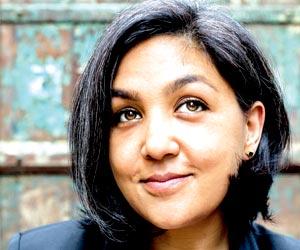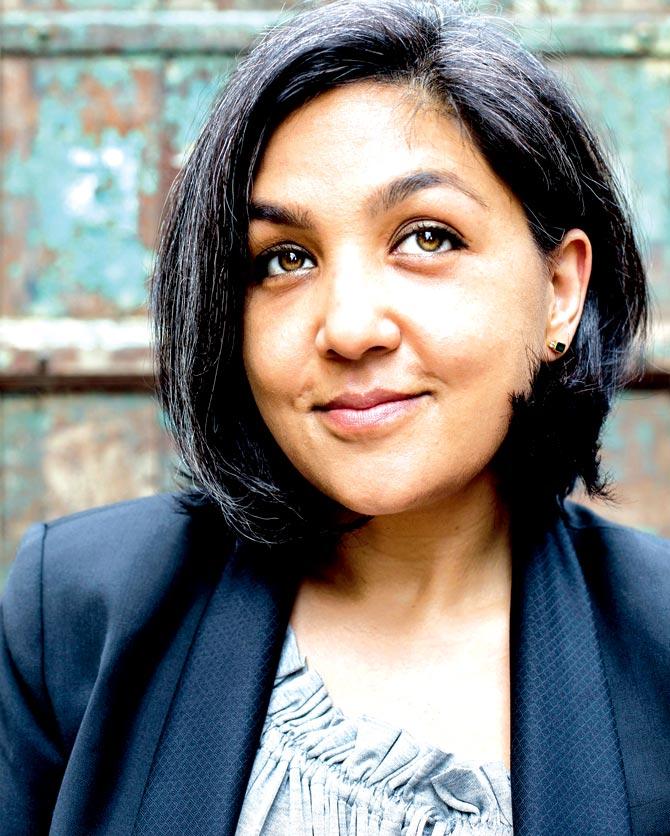Writer and human rights activist Preti Taneja reveals how she adapted King Lear, a story set in 16th century Britain, to fit Delhi-Kashmir-Amritsar for her debut novel

There isn't a creative soul who has walked this earth in the last 400-odd years, who hasn't been influenced by William Shakespeare. From celluloid to fiction, the concomitant, audacious adaptations of the famed English writer, have continued to challenge and astound purists through time and space. It's these retellings that first piqued the interest of London-based writer and human rights activist Preti Taneja.
ADVERTISEMENT

Preti Taneja. Pic/Louise Haywood-Schiefer
"Films from Kozinstev's Korol Lear (a Russian King Lear) to Hollywood's 10 Things I Hate About You, all show how writers must have the same courage as Shakespeare did - to take existing material and make it your own. Shakespeare's plays are the source material, but his methods show us what is possible too. Purity is overrated," she says in an email interview.
Her debut novel, We That Are Young (Penguin Random House), which saw its India launch this month, is an adaptation of the Shakespearean tragedy, King Lear. It is set in fictional versions of Delhi, Amritsar, and Kashmir and a state called Napurthala, recasting characters from the original, who probably witness the same fate as Shakespeare's, but come with different agendas.
The book opens with Jivan Singh, an illegitimate son, who returns to his childhood home in Delhi after over 15 years of exile to find a city that's battling protests, and drought. On the same day, Devraj, father to Jivan's childhood friends and founder of India's top business firm, announces his retirement, demanding daughterly love in exchange for shares. Sita, his youngest child, refuses to play, turning her back on the marriage he has arranged. Her sisters, Gargi and Radha, must take over the empire and cement their father's legacy. What follows is a similar tumult and tragedy that besets the original - only here, the complexities of the politics of power are closer home and not reminiscent of 16th century Britain. "I wanted to weave King Lear as deeply as I could into my story, and India was the perfect setting," says Taneja.
"I have lived all my life in the UK where Shakespeare is a big part of language and culture, so I always wanted to explore his legacy through an Indian lens. It was my way of examining colonial legacies in the Indian part of my history, of tracing how patterns of violence repeat in nations and families over time, and see if fiction can address that," she adds.
The character that Taneja most enjoyed exploring was Edgar's, who becomes Jeet in We That Are Young. "He is the most fascinating, and I think misread too. He has an extraordinary personality - able to hide in plain site for survival, able to cast off all trappings of wealth and send himself halfway, only halfway, to madness. He makes up language, he convinces his own family that they don't know him, and when he sees his blinded father, he extracts a very curious teach-him-a lesson moral revenge.
He uses the laws of chivalry to justify killing a servant who is doing his job, and then to fight and kill his own brother. And he's quick to accept the Kingdom at the end. To me, he is the core of We That Are Young and his section is one that allowed me to explore the dark heart of the play," says the writer. However, to say that Taneja's obsession with Shakespeare only began with writing and researching this novel would be incorrect. "I studied King Lear for English Literature A-Level when I was 17. I was provoked, enthralled and inspired, and that never went away," says the writer.
In fact, the first draft of this novel was submitted as a dissertation for a PhD in creative writing, for which she received funding. "I was able to quit my job and give myself the time to read a lot, travel, research and write. It was hard work, but I got the first draft done in time and got the PhD. After that, I taught while doing my postdoctoral research, and made time to redraft and edit the book alongside that," says the author.
Her long association with the tragedy makes King Lear feel like an "old friend". "The play and I have been through a lot together, including some big arguments. I have a very battered copy of the play I refer to a lot, and I still find lines I don't know. King Lear contains a hyper-real and brutal universe, it is scathing about hypocrisy and corruption, the treatment of the poor, women and 'others' and also pretty harsh on masculine hubris. It's so linguistically inventive - which is wonderful for writers and readers."
 Subscribe today by clicking the link and stay updated with the latest news!" Click here!
Subscribe today by clicking the link and stay updated with the latest news!" Click here!






